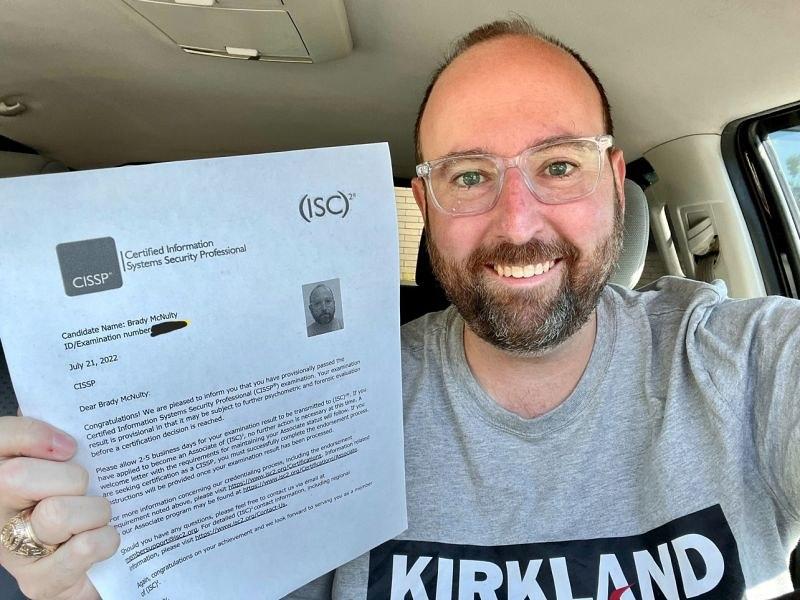If you want to know how to become a software security engineer, read this career guide because I provide the six essential steps to begin this career!
Software security engineers build and maintain security systems. Thus, companies need these engineers to create the most secure and optimal systems.
Read on to learn about the education, certifications, and experiences required for this position!
Overview of Software Security Engineers
Before diving into the steps to become a software security engineer, I will provide an overview of the position, including the concept, duties, and requirements.
Who Is A Software Security Engineer?
Software security engineers are skilled pros responsible for safeguarding software systems and apps against cyber threats, vulnerabilities, and attacks.
In an increasingly digital world, where the use of software is pervasive, the role of these engineers has become crucial to protect sensitive data, maintain user trust, and ensure the integrity of software products.

Duties and Responsibilities
As a software security engineer, my duties include a wide range of activities aimed at safeguarding systems and apps.
- Design secure solutions: I provide designs for new solutions to mitigate potential vulnerabilities.
- Implement security measures: I add extra locks and alarms to computer programs. These locks and alarms make sure that hackers can’t break in. I also make sure that programs follow the security rules.
- Contribute to structure: I team up with cross-functional teams to ensure that security solutions are integrated at all levels of the software structure.
- Security test: I keep checking programs to see if there are any weak points hackers could use.
- Fix problems: If something goes wrong with programs, I’m the one who figures out what happened and fixes it.
- Keep records: I keep track of all the security checks and changes I make.
- Learn new things: I’m always learning about new tools and ways to keep our programs safe.
Skills and Requirements
When you search for these jobs, you will see the following requirements in companies’ job postings:
- Work experience: You should have worked in this field before to know what the job is about.
- Technical skills: You must know a lot about security techniques and standards in password protection, data encryption, and fixing problems.
- Programming skills: You must be good at a coding language like Java, Ruby on Rails, NET, or JavaScript. It helps you make software more secure.
- Web and network skills: You should know how websites and networks work because most security problems come from there.
- Education background: Many engineers in this field have a Bachelor’s degree in CS or something similar. It’s not always required, but it can be helpful.
In short, to work in this field, you need experience, know-how about computer security, coding skills, web and network knowledge, and sometimes, a computer-related degree.
How To Become A Software Security Engineer
Here are six steps to becoming a software security engineer, from getting an education and certifications to gaining experience and networking!
1. Get An Education
Most jobs in this field need at least a Bachelor’s degree. It’s a good idea to study one of these majors:
- Information Technology or Computer Science
- Electrical engineering
- Information science
- Cybersecurity
- Software Engineering
When picking a major, think about what interests you in this field. Some majors focus more on hacking, secure software, or network safety. Look at the program details to ensure they match your career goals.
If you already have a degree but want to switch to this field, you can join Bootcamps. They are quick, intensive training (3-8 months) that covers coding, software security basics, and more.
For advanced roles or higher pay, think about getting a Master’s degree in cybersecurity or a related field.
2. Obtain Certifications

Since obtaining certifications does not take much time and is beneficial when looking for a job, I recommend investing time to get them while in a Bachelor’s degree program.
For this job, certifications prove you know how to keep computer programs safe. And employers like hiring people who have proven they’re experts for vital roles.
Here are some notable options for this career:
- C/ES: It focuses on encryption (turning data into secret code to keep it safe from prying eyes). It’s all about protecting data, whether it’s stored on a computer, sent over the internet, or in any form.
- CISSP: It is like a gold standard in this field. It shows you’re great at designing, building, and managing programs.
- CSSLP: It focuses on secure software development practices, including secure coding, security testing, and app security management.
- CISM: It is for those who want to lead security teams. It covers managing risks and dealing with problems.
- C/EH: It is for people who want to learn how hackers work so they can stop them. It’s not just for software but helpful for understanding threats.
- OSCP: It is for advanced engineers who like hacking and testing systems.
- GWAPT: It is all about securing web apps, which is vital for engineers working on web software.
- CASE: It is for people who want to build and test secure software. It’s like a roadmap for writing safe code.
Remember, when you go for certifications, consider what you want to do in your career and what skills you need.
3. Gain Experiences In Related Positions
Employers feel more confident hiring someone with experience because it shows you can apply what you’ve learned in real cases. This experience proves you know what you’re doing and can handle the job’s challenges.

Here’s how you can gain valuable experiences that will help you stand out:
1. Internships:
If you’re in college, your career center can help you find internships. These are short-term jobs that help you learn and get experience. Sometimes, alumni will hire students for internships.
2. Co-op opportunities:
Some colleges let you work part-time jobs while you’re still a student. Getting these opportunities can put you ahead of your classmates. And you might even get a full-time job offer when you graduate.
3. Entry-level jobs:
Look for beginner jobs related to security or software. Even roles like IT support or software testing can teach you about this field. These jobs help you build vital skills and learn how security works in the real world.
4. Personal projects:
You can also work on your own projects related to security. These projects let you learn by trying things out, including security tools and coding techniques.
4. Build Network and Industry Involvement

Becoming a software security engineer is not just about what you know; it’s also about who you know and being part of the community. Here’s why:
- When you connect with others, you can learn from them, and they can learn from you.
- You can find someone more experienced to guide you (a mentor). They can share their wisdom and help you in your career.
- Many jobs are not advertised publicly but are filled through personal connections.
- Working with others on projects or research can expand your skills.
Networking and getting involved in the industry means actively taking part in events, conferences, and online groups related to the field:
- Conferences and meetings: You can attend events, for example, DEF CON and Black Hat USA, to meet experts and learn about the latest trends and practices.
- Online communities: You can join forums and groups online to connect with pros from all over the world.
- Contributions: You can share your knowledge through articles or open-source projects to give back to the community and show your skills. It boosts your credibility.
Another important thing you should do in this step is to build your online presence through these channels:
- LinkedIn: It is a social media profile to connect with others in your field.
- GitHub: If you’re into coding, you should have a GitHub portfolio to show your projects and coding skills.
- Blogging: You can start a blog or write articles to help others learn.
In short, this step is like building bridges in your career. It opens doors to learning, finding mentors and jobs, and gaining recognition in the field.
5. Build Your Portfolio
For freshers, a portfolio will help you show your knowledge and skills even if you have little experience in this field.
In your portfolio, it is vital to include different projects (or practical assignments). Each project should show various skills in this field. Some projects you should add to your portfolio might be:
- Data retrieval
- RFID blocking
- An encryption tool
- A keylogging tool
For this job, the best way to present your portfolio is through a website that you build yourself. You can use Weebly or Squarespace to help with this. If you are more tech-savvy, Github and CodePen are better options for showing your code.
6. Find A Job
Finding a job means searching in the right places, customizing your application materials, preparing well for interviews, showcasing your skills, and staying persistent.
Start by searching for job openings on Indeed and LinkedIn. These are the big job boards where companies post their job ads.
You should also check out tech-specific sites, for example, Dice, which focuses on IT jobs. Besides, explore Wellfound, which lists jobs at startups.
If you’re part of a professional group or your college has an alumni directory, ask if anyone knows of job openings. Sometimes, knowing someone can help you find job leads.
When you apply for a job, tweak your cover letter and resume to match the job description. I recommend using the words and phrases they use in their posting.
If you have a portfolio of your work, include it in your application materials. Before sending it, ensure the link works and everything is in order.
Next, you should prepare for interviews. Expect questions about this field during interviews. You might also get asked about how you handle problems and work with others. So, be ready to talk about them.
During interviews, talk about your skills in the field. You can share stories of how you’ve secured software, found and fixed problems, and made software safer.
By following these steps and showing your expertise, you’ll improve your chances of landing the job you’re aiming for.

FAQs
Can A Software Engineer Also Be A Security Engineer?
Yes. A software engineer can transition into a security engineering role. While it’s less common due to the specialized nature of security roles, software engineering experiences provide a strong foundation.
So, transitioning to security engineering is achievable with an ability to grasp security principles.
Is It Hard To Become A Software Security Engineer?
It can be challenging but not impossible. To get this job, you need to learn about security practices, stay updated with threats, and gain experience. This knowledge and skills can be learned with dedication and training.
Is A Security Engineer The Same As A Software Engineer?
No, they have distinct roles. Security engineers focus on securing systems, detecting threats, and responding to them. Meanwhile, software engineers create software apps.
How Much Do Software Security Engineers Earn Annually?
On average, a software security engineer in the US earns around $118,834 per year. Salaries vary based on experience, location, and the company, ranging from $108,623 to $129,673.
What Is The Working Environment Of Software Security Engineers?
These engineers often work full-time in the office. Sometimes, they work overtime to resolve unexpected issues or to meet tight deadlines. Although the work location is primarily in the office, some need to travel frequently.
Wrap Up
Nowadays, the demand for network security is increasing. So, you will have many job opportunities when pursuing this career.
Hopefully, the guide on how to become a software security engineer above has helped you know how to start the journey of gaining the required knowledge and skills to apply for this job.
You will become an engineer if you continuously learn and develop!
